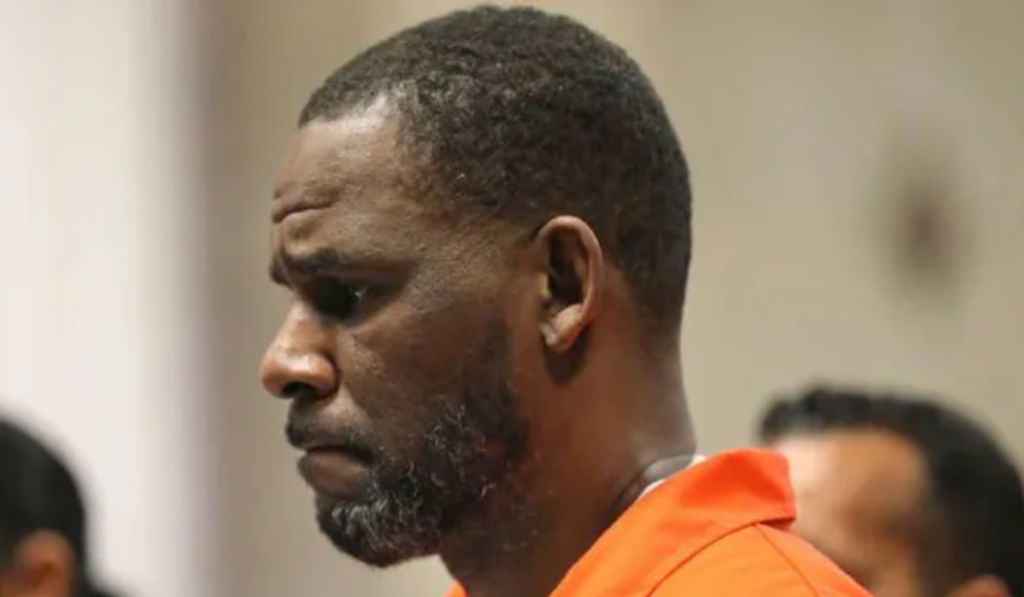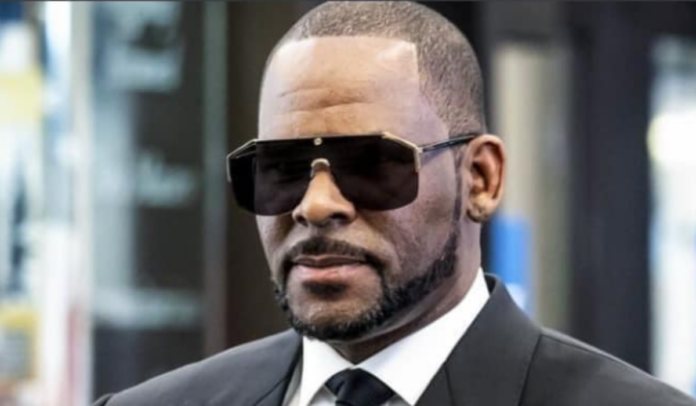R. Kelly, also known as Robert Sylvester Kelly, has lodged an appeal with a New York court, seeking to reverse a 30-year sentence imposed on him in 2022.
The R&B artist, convicted of racketeering and trafficking after a widely-publicized trial in New York in 2021, is contesting the verdict.
Following years of accusations throughout his career, R. Kelly received an additional year in prison for charges related to indecent images of children and child enticement in Chicago last year.
Notably absent from the appeal proceedings, Kelly contends that prosecutors failed to substantiate their racketeering allegations or prove his involvement with multiple women. He further asserts that his trial was unjust due to preconceived notions of guilt among jurors, inadequate legal representation, and an overwhelming presentation of unrelated alleged misconduct.
Kelly’s defense attorney, Jennifer Bonjean, initiated the appeal by challenging the interpretation of a RICO enterprise (Racketeer Influenced and Corrupt Organizations), questioning whether inherent illegality is required for such an organization.
Regarding Kelly’s staff, Jennifer Bonjean addressed whether they were aware of the activities transpiring “behind closed doors.” She explained that while the staff adhered to certain protocols and performed seemingly innocuous tasks, there was nothing indicating they were aware of any illegal activities transpiring.
When questioned about whether the staff knew the ages of the girls recruited to visit Kelly backstage, Bonjean stated, “I do not believe there was any evidence to suggest that employees knowingly arranged travel for individuals under the age of consent.”
US Attorney details R. Kelly’s tactics
Assistant US Attorney Kayla Bensing, representing the United States, asserted that R. Kelly had established a systematic approach aimed at ensnaring young individuals into his sphere of influence, subsequently exerting control over their lives. She proceeded to recount instances where women aged 16 or 17 were invited backstage by members of Kelly’s staff, highlighting one particular incident where Kelly’s bouncers extended such invitations during a Miami concert.
Bensing emphasized the timing of this event, occurring just three days after Kelly’s marriage to Aaliyah, a marriage allegedly facilitated through bribery of a county official to conceal or mitigate the repercussions of illicit sexual conduct.
Additionally, Bensing referenced testimony from a former associate of Kelly’s who described his girlfriends as appearing notably youthful, specifically resembling teenagers. Besides, she presented evidence indicating that Kelly’s team was aware of his herpes diagnosis, acquired through unprotected sexual encounters with his victims.
Arguments unveiled in R. Kelly’s appeal hearing

During the appeal hearing, the claim of forced labor was finally introduced into the case by the prosecution, with R. Kelly depicted as coercing individuals into providing labor or services, notably sexual acts, under the threat of serious harm or physical restraint.
In a concise rebuttal lasting three minutes, Ms. Bonjean contested the forced labor charges, characterizing them as predicated on a solitary act. She challenged the notion that a single instance of forced oral sex could be equated with forced labor, arguing against aligning federal law with state law on this matter.
Moreover, Bonjean criticized the prosecution’s stance that a RICO enterprise must inherently involve criminality, labeling it as “unique” and lacking support from prior legal precedents.
The judges are now tasked with deliberating on the appeal and are expected to render a written decision in due course. Under his current convictions, R. Kelly, aged 57, faces 30-year prison sentence. That means he will be eligible for release at around age 80.


